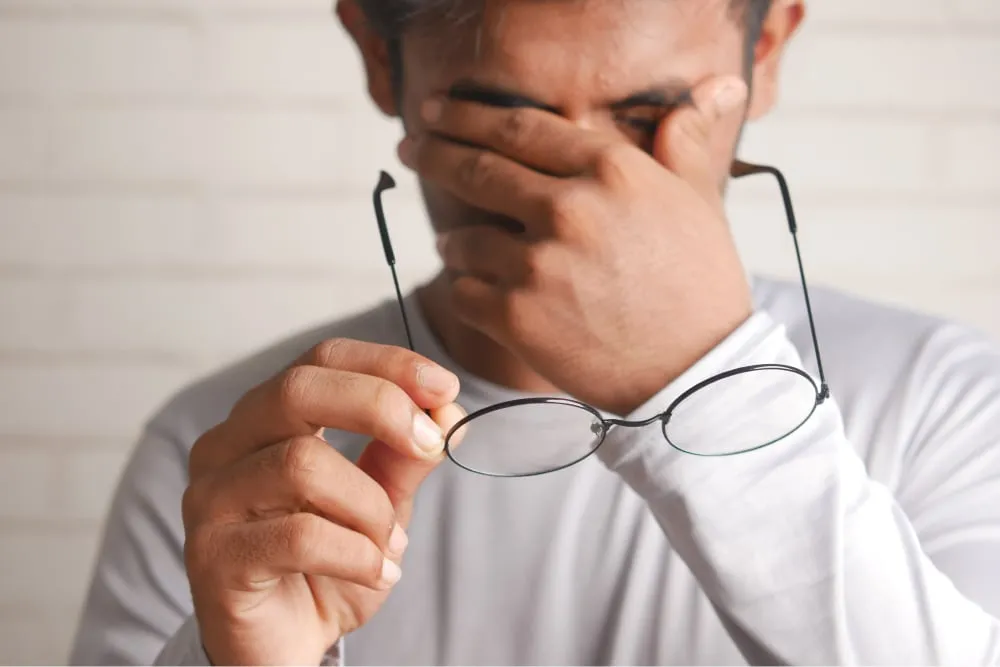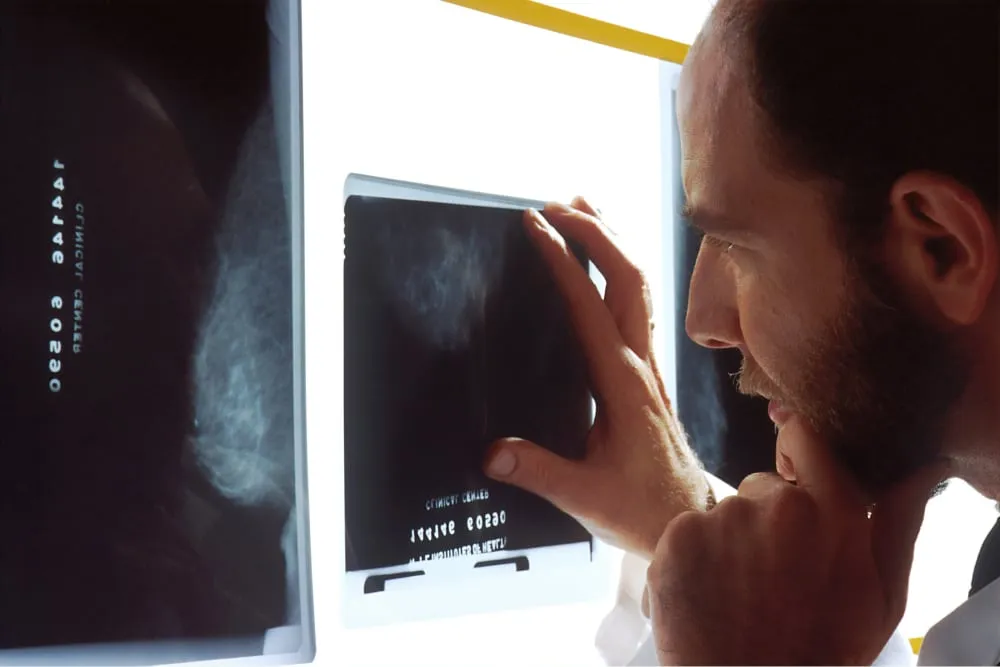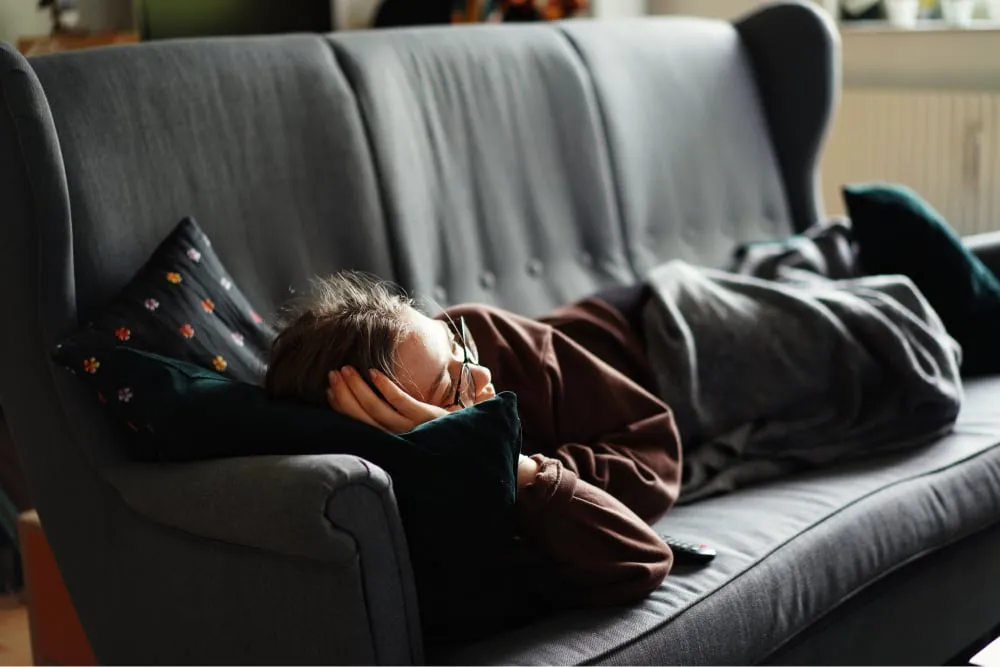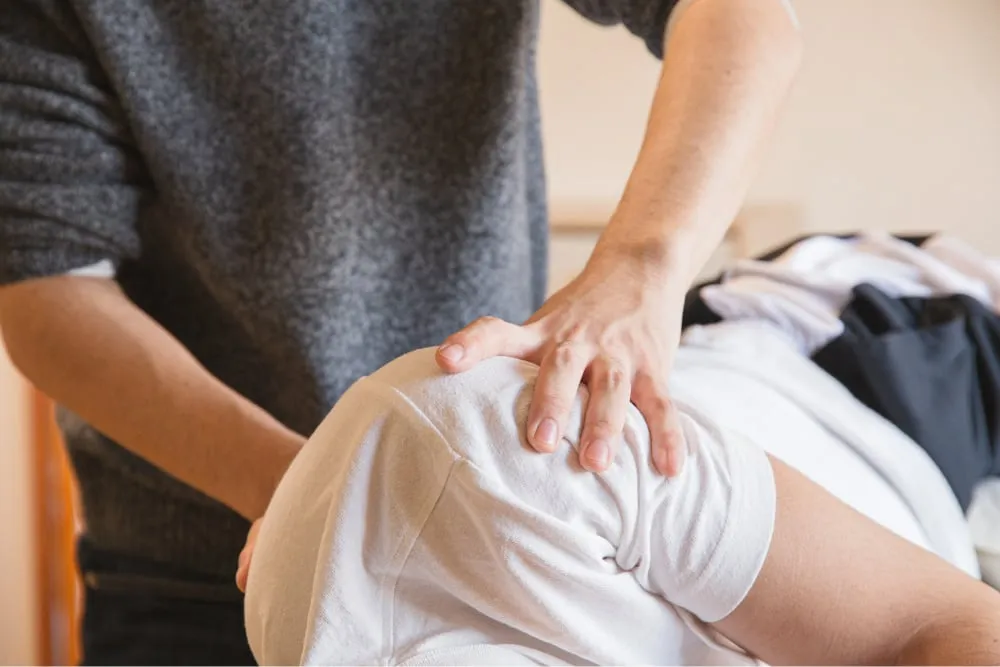Anorexia lower back pain: what’s the cause?
In many cases, anorexia lower back pain is a result of malnutrition that comes from undereating. For example, being deficient in potassium and magnesium can lead to muscle cramps, which can cause pain in the muscles of the lower back. In some cases, severe malnutrition in people with AN can lead to osteoporosis, which can cause bone pain in the lower back. (2)
The reality is that AN-related pain can occur anywhere in the body. Nutritional deficiencies associated with anorexia can cause numerous health conditions that result in pain, and muscle cramps/weaknesses from the eating disorder can be widespread. Over time, individuals with anorexia may begin to suffer from chronic pain. (2)
Anorexia and pancreatitis
Anorexia nervosa-related malnutrition can result in pain in the lower back and other areas of the body, but sometimes, pain can be a result of a serious health condition: pancreatitis. When digestive enzymes attack the pancreas, it can become inflamed, leading to symptoms of pancreatitis, which include nausea, vomiting, fever, jaundice, and swelling in the stomach. Pancreatitis also leads to stomach pain, which can radiate to the lower back. The condition can be either acute, in which it causes temporary inflammation, or chronic, in which it is long-lasting and causes permanent damage to the pancreas. Severe cases can be fatal if untreated. (3)
The exact relationship between anorexia and pancreatitis isn’t entirely understood, but studies have suggested that malnutrition in and of itself can cause pancreatitis. (4) If anorexia lower back pain comes on suddenly and is accompanied by other symptoms, such as nausea and vomiting, it is probably wise to contact a doctor to determine if pancreatitis is to blame.
You might be interested in
Treating anorexia back pain
Ongoing back pain is uncomfortable and can begin to interfere with daily functioning. For instance, it may be difficult to perform regular tasks, such as getting dressed, tending to chores, and fulfilling duties at work if you suffer from chronic pain. If lower back pain in AN is accompanied by other health issues, your quality of life and overall functioning can deteriorate even further.
The specific treatment for anorexia nervosa-related back pain will depend upon the cause. If it is due to a nutritional deficiency, it may be necessary to take supplements to improve nutritional status and alleviate pain, as well as increasing dietary intake. Back pain that is related to specific health issues like osteoporosis or pancreatitis may require prescription medication.
In some cases, patients may benefit from taking Tylenol or anti-inflammatory medications to treat chronic pain with anorexia nervosa, but ultimately, the best course of action is to receive treatment for the eating disorder. Without an adequate diet that provides the body with the nutrients it needs to function, it will be impossible to overcome the underlying issues leading to back pain. With proper nutrition and weight restoration, the body can begin to heal.
If you’re living with anorexia nervosa, reaching out for treatment is the first step toward recovering from the eating disorder and treating co-occurring health conditions, including low back pain. When you seek treatment, you will receive a full medical evaluation to identify any health issues you may have. A doctor can uncover the underlying cause behind back pain and provide appropriate treatment. In addition to medical care, your treatment team will provide counseling and other interventions to help you overcome body image disturbance and heal your relationship with food.
You might be interested in






































